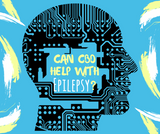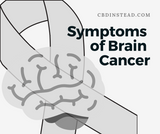You know that feeling you get when you lose sight of your kid in public? Or that feeling when someone ran a red light and just barely missed you? Your heart is racing; you may be more aware of your surroundings, sounds are sharp, smells are potent. This is your body setting off an alarm system to keep you safe, but when there is no threat nearby, and your body is still reacting this way, your brain has taken over, and your amygdala is hijacked.
What is the Amygdala Hijack?

“Amygdala Hijack” is a term coined by a psychologist named Daniel Goleman who wrote the book Emotional Intelligence: Why It Can Matter More Than IQ. Goleman recognizes that we have evolved as humans, but we still have an ancient alarm system in our brain that is designed to keep us safe by going off when there is a threat nearby. While this is a great tool for our body to use when we are protecting our tribe in a cave from predators, in modern times, it can interfere with our functioning.
What is the Amygdala

The amygdala is a region in your brain shaped like two almonds, and it is located in the temporal lobe. Its main role is creating the fight or flight response that makes you respond to threats. Another job the amygdala has is deciding what memories you keep and where they are stored as well as the level of emotion associated with the memory.
When you are faced with a threatening situation, like public speaking or dealing with a confrontation you’d rather sweep under the rug, the thalamus in your brain receives stimuli and sends the signals to your amygdala and cortex. If the stimulation gives the amygdala a sense of danger, it decides to alert the body with the fight or flight response or let the situation slide because it isn’t a threat to you, the host before the cortex even has time to chime in. If the situation is threatening to your amygdala, it triggers a chemical response that can raise your heart rate, blood pressure, and breathing to get you ready for battle or to get the heck out of there as fast as you can.
While in the past this would be a great way for your muscles to get blood and oxygen to give you an advantage in the fight or flight, this also shuts off the cortex making people who are experiencing this fearful response unable to think clearly. It can be hard to problem solve and concentrate because your body is reacting in such a primitive way. This process can get so intense, that people who experience this fear response can take hours to recover.
Chronic Stress and the Amygdala Hijack
So why is it that some people can handle stressful situations while others have an amygdala that goes off every time the wind blows? Brain imaging studies have shown that individuals who have PTSD, social anxiety, panic disorder, or any other anxiety disorders have an amygdala that is overly sensitive, making the fear response happen more often and sometimes more powerful. Scientists aren’t sure why the amygdala malfunctions in some, though many believe it has to do with the environment you grow up in, the medication you may take, life events that have happened to you, or genetics. Many people turn to medication to calm their brain down because chronic stress can trigger the amygdala hijack more frequently, one of the medications being CBD oil.
CBD for the Amygdala Hijack and Chronic Stress

One of the reasons CBD oil works so great for anxiety is because it elevates and enhances an endocannabinoid in the brain called Anandamide. Anandamide binds mainly to the CB1 cannabinoid receptors in your brain which are in charge of regulating things like pain, your appetite, sleep cycle, and your mood. Because it is a regulator, CBD oil helps to make things in your brain work the way they are supposed to. If you have an overactive amygdala that is always getting hijacked, CBD oil may be the solution you’ve been looking for.













